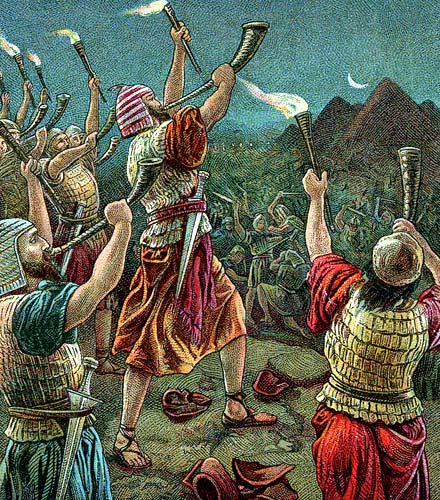We make bad decisions when we are afraid. We try to take control of things that we are not meant to control, we justify choices that are not great, we lay blame and we treat others as the problem rather than part of the reason for why we are doing things in the first place.
Saul was a ‘choice young man and among the children of Israel there was not a goodlier person’, conscious of his humble beginnings and the big responsibility before him. He was also a spiritual man, cared about others, prone to inspiration and prophesy, and conscious of his partnership with the Lord in leading Israel. So with that great beginning as a King, where did he go wrong? Same place we all do - Fear.
In the battle against the Philistines the people were running scared, hiding in caves, fleeing as fast as they could. King Saul was on the battlefront waiting for Samuel to come and offer the sacrifice that would sanction Israel in this new war. When Samuel was delayed, Saul began to be afraid, he justified making the sacrifice himself, he was after all the anointed one. As soon as he had done so Samuel turned up and reproved the new King, he had overstepped his authority and it would eventually end his continuing right to the kingdom.
It’s easily to judge Saul harshly but let’s look at it from Saul’s point of view. His people were under threat of death, crying to him in the harrowing of their souls, to make matters worse soldiers were dissenting all over the place. They were looking to him for answers, and as their king he felt particularly responsible. He knew he needed the Lord, but Samuel the prophet was nowhere to be found and the situation was getting worse by the hour. If the imminent battle came, they were very unprepared, because the sacrifice had not been made, the people would despair and the loss could be catastrophic, he could lose it all. He had to act.
Knowing what to do when you are afraid is challenging. Fear takes you out of your right mind, puts you into flight or fight mode. Some fear is ongoing, gnawing, like not feeling like you have enough, some fear is intense like being in danger. Fear will push you to the edge, and even beyond.
Once fear has you it is relentless. In David, Saul sought relief from his fear, David’s harp playing calmed him and his courage on the battlefield saved the Kingdom. But when the people revered David above Saul and whispered of his anointing under the hand of Samuel, and when his own son liked David more and his daughter Michal wanted to marry him. David went from Saul’s savior to his greatest enemy. To Saul, David was the personification of all he feared. By ridding himself of David maybe he could finally be free. So he sought to banish him and when that didn’t change anything he unsuccessfully tried to hunt him down to kill him. Sauls fear blinded him to the love that was on offer.
In contrast David sought every opportunity to be at peace with Saul. Even with Saul seeking his death, he respected that he was the Lords anointed and he would not lift his hand against him. David loved the Lord, and trusted that He was looking out for him.
This powerful relationship between the two kings gives an amazing insight into how fear distorts our perception of what is going on. How we can end up fighting against the very thing that will bless us the most. But most importantly despite the worse possible situations if we have faith and love the Lord can lead us through our challenges to great blessings. As John in the New Testament wrote “ Perfect love casteth out fear”.
 |
| Saul mistakes David as his enemy. |
















